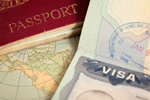Expat professionals are loving life in the Caymans

Expat professionals are loving life in the Caymans
In spite of rumours to the contrary, the Caymans hosts a thriving community of expat professionals working for close to 100,000 legally registered companies operating in various sectors including accountancy and finance. Georgetown is a hub for accountants, and the main island is small enough to easily drive from end to end, taking in the scenery as you go. It’s an autonomous British Overseas Territory with no income tax, a perk which makes it popular with expats lucky enough to get a job.
Unfortunately, you can’t just turn up and begin searching for employment, as all jobs must first be opened to locals, with incomers only hired if a local search has proved unsuccessful. Work permits are mandatory, and it’s employers who apply and pay for them at a cost of around $17,000. Expat positions aren’t limited to the financial services sector, with vacancies also cropping up in construction, the hospitality sector and even in the island’s police force. Jamaicans are the largest expat group, with Filipinos close behind and the UK in third place. The island is also popular with workers from Canada, India, the USA and Honduras, and a good number of other nationalities are also represented. Americans get the worst deal as, if they’re earning more than around $100,000 they’ll be hit hard by US income taxes, not to mention the dreaded FATCA.
All applicants for new positions on the island must have fluent English, and a few other requirements and exceptions have to be taken into account, giving prospective employers a hard time as regards paperwork. The island itself, although stunningly beautiful, has delusions of grandeur in that it has its own currency, its own security service and an old-fashioned British-style cabinet complete with ministers of health, commerce and various other governmental organisations – all of whom address each other as ‘the Honorable’. All foreigners are referred to as ‘expats’ even although they may have lived and worked in the Caymans for decades, and the islanders themselves tend not to mix with the expatriate community. The downside for newcomers is that a higher than expected proportion of the population is poverty-stricken in a place where massive amounts of money come in via financial activities and offshore company registration. Half the population are expatriates who live large on a regular basis, so it’s perhaps not surprising here’s a gap between incomers and locals.
Related Stories:
- Is Kuwaitization the unintended result of the oil price crash? - July 20, 2020
- Expats in Malaysia still banned from overseas travel - July 17, 2020
- HSBC Asia to cut back on internal expat relocations - July 16, 2020
- Tips on integrating for newly-arrived expats - July 15, 2020
Latest News:
- Tips on a trouble-free relocation as an expat overseas - July 20, 2020
- Expats find peace in the covid-19 refuge of Dahab town - July 20, 2020
- Is Kuwaitization the unintended result of the oil price crash? - July 20, 2020
- Expats unhappy abut changes to Korean points-based visa system - July 17, 2020
- Chiang Mai and Bangkok no longer bargain locations for expats - July 17, 2020
- Expats in Malaysia still banned from overseas travel - July 17, 2020
- Vietnam welcomes expats to its safe, affordable lifestyle - July 16, 2020
- Asian tiger economies reach out to expats in Hong Kong - July 16, 2020
- HSBC Asia to cut back on internal expat relocations - July 16, 2020
- Tips on integrating for newly-arrived expats - July 15, 2020


